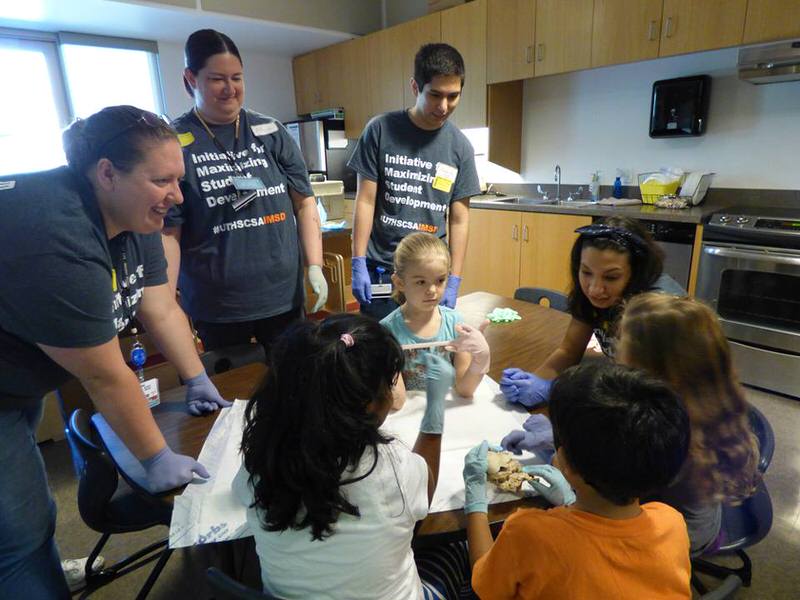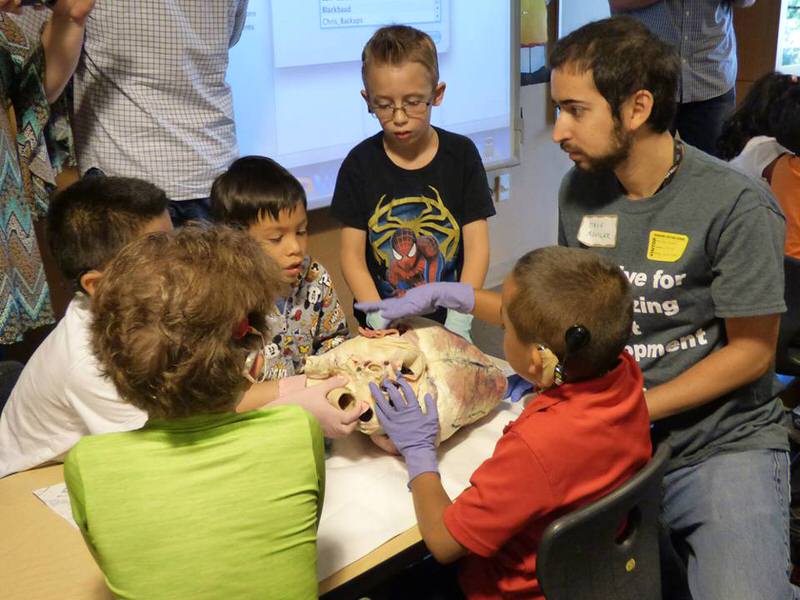Bringing Science to the Community: GSBS Volunteers With Children with Hearing Loss

A group of graduate students volunteered at Sunshine Cottage School, a school for children with hearing loss, to teach science.
“It was a great experience that takes you out of the lab and teaches you to simplify things,” said Angie Salinas, graduate student in the Neuroscience track of the Integrated Biomedical Sciences program. “It allows us to share our love for science with the younger population.”
Salinas explained that simplifying science to basic knowledge isn’t easy, especially to a simplicity that can be understood by a child in early elementary.
“This was a great experience that challenged us to communicate what we do and get children excited about science,” Salinas said. “This school was also a perfect example of the product of the work researchers do. The
cochlear implants that allow these children to hear and communicate with other people without the use of sign language is the result of innovation due to extensive research.”

Amanda Munoz, graduate student in the Cancer Biology track of the Integrated Biomedical Sciences program and SACNAS president, said she was surprised to learn about the resources available for hearing impaired children.
“Education for the hearing impaired has come a long way, but there is still more room for improvement,” Munoz said. “I also did not realize that in the age of medicine and in the U.S., there are still so many children who become hearing impaired due to infections.”
During the event, the students showed plasticized organs to the children and also participated in experiments modeling DNA and germs.
“I think events like these are a great way to show kids that science is fun and that anyone (no matter their disability or race) can be a scientist,” Munoz said.
The group is part of the Initiative for Student Maximizing Student Development (IMSD R25 GM095480), a National Institute of Health student development program for institutions with research-intensive environments.

According to the NIH, the goal of the program is to increase
the number of students from underrepresented groups in biomedical research who complete Ph.D. degrees in these fields.
The program offers an opportunity to develop new or expand existing effective academic developmental programs,
including student research internships, in order to prepare students from underrepresented groups for competitive research careers and leadership positions in the biomedical sciences.
“We have a group of smart, motivated individuals who enjoy
reaching out to the community,” said David Aguilar, graduate student in the Neuroscience track of the Integrated Biomedical Sciences program.
Munoz explained that events like these are important for her to serve as a role model.
“It is a good way for us to demonstrate to children that you can be whatever you want when you grow up,” Munoz said. “To the kids, even without knowing our personal stories, we are a great example of the fact that your origins should not dictate your career path….the choice is yours.”
